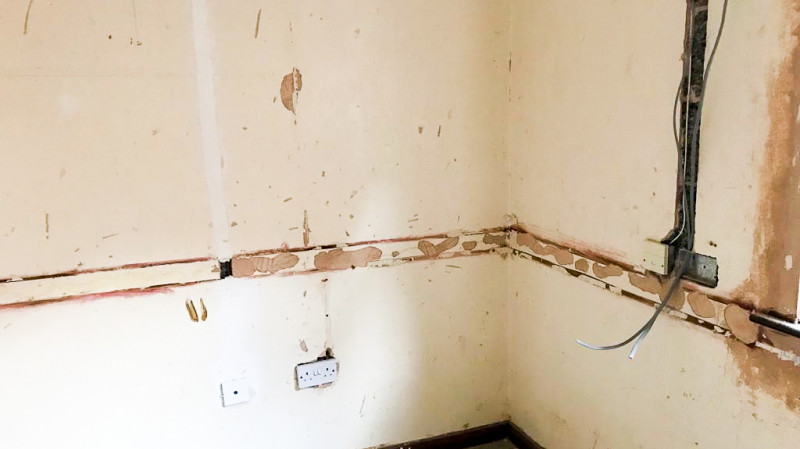You are here: Do sellers provide an electrical safety certificate?
Electrical safety in the home is vitally important; faulty wiring can cause electric shocks and fires. But is an electrical safety certificate, necessary to sell a house or flat?
Perhaps surprisingly, the answer is no. Sellers are under no legal obligation to provide buyers with an electrical safety certificate – also known as an Electrical Installation Condition Report. The National Inspection Council for Electrical Installation Contracting (NICEIC) does, however, recommend 10 yearly inspections of all domestic wiring installations or when a change of ownership occurs – whichever happens first. However the onus is on the buyer rather than the seller of a property to check the electrics are safe. A recommendation for an electrical installation condition report may be made in a Homebuyer or Building Survey.

Does the seller need to provide any certificates?
Yes. If the electrical wiring of a property has been extended or altered since January 2005, the seller must, by law, obtain a certificate known as a ‘Part P Building Regulation Certificate’ to hand to the buyer. This proves that all new electrical work and any changes meet standards, or they will be committing a criminal offence. Electrical work covered by Part P must either be certified by the installing electrician that is registered with one of the government’s schemes or checked and approved by Building Control at the local authority. Councils have the power to force homeowners to remove or alter any work that breaches the rules.
More about Part P?
In 2005, the Government introduced electrical safety rules into Building Regulations for England and Wales. Part P states that anyone carrying out electrical installation work in a home must make sure the work is done in such a way as to protect people from fire and electric shocks. The legislation applies to new and old properties as well as any additions, such as a loft conversion or rear extension. Apart from some minor work, such as adding a new socket in a kitchen, all electrical work must either be reported to the local authority’s building control department or carried out by an electrician who is registered with one of the Government-approved schemes. These qualified electricians are also known as ‘registered installers.’
So, what work is covered by Part P?
In 2013, the rules were changed to reduce the range of minor electrical work that is covered by Part P – and requires a certificate. Today it includes:
- Installing a new circuit
- Replacing a consumer unit or fuse box
- Adding to or altering existing circuits, including a new socket, in a ‘special location’.
A special location means:
- A room containing a bath or shower or the space surrounding a bath tap or shower head where the space extends vertically from the finished floor level to a height of 2.25m or the position of the shower head where it is attached to the wall or ceiling at a height higher than 2.25m or horizontally from the bath tub or shower tray to a distance of 0.6m.
- A room containing a swimming pool or sauna heater.
All other work is non-notifiable, such as repairs and maintenance. For more information see www.niceic.com
While electricians carrying out work in England and Wales must comply with Part P of the Building Regulations, in Scotland there is a Building Standards system. Currently, Northern Ireland has no equivalent statutory rules. It’s always sensible to check with your local council.
What about landlords?
Although there is still no legal obligation to have an electrical safety report, landlords are legally responsible for the safety of their tenants. This means they are required by law to ensure that the electrical installation (for example, wiring, circuits and consumer unit) and any electrical equipment provided is safe. It’s recommended for landlords to protect both themselves from serious financial risk - as well as tenants from electrical fire or shock - to have the electrics regularly inspected by a qualified electrician. The inspection should be done every five years or at the start of each new tenancy in case the previous tenant damaged the wiring.
Advantages of using a registered electrician
Electrical work must only be carried out by people who have the knowledge, skills and experience to avoid danger to themselves and others. In England and Wales, if you use an electrician who is ‘Part P qualified and registered’ you can expect to have safe, better quality electrical work. When the work is finished, you will be given certificates to confirm the installation meets Building Regulations. Registered electricians in Scotland work to the UK national safety standard (BS 7671) and will give homeowners a safety certificate to show the work has been designed, inspected and tested in line with that standard.
If you are looking for help with any electrical issues, you may find some of these services useful:
Electricians
Get contact details for Electricians near to you. View the Feedback from other Customers to help you make an informed choice.
Electrical Reports
Find an Electrician to produce an Electrical report (sometimes known as an Electrical Installation Condition Report - or EICR) for a property.
Smart Home Technology
If you are looking for an Electrician to help with Smart Home Technology
Kitchen / Bathroom Electrics
If you are looking for an Electrician to help with Kitchen or Bathroom Electrics
LED Lighting
If you are looking for an Electrician to help with LED Lighting
Electric Heating Installation
If you are looking for an Electrician to install Electric Heating
Electric Vehicle Charging Point Installation
If you are looking for an Electrician to install an Electric Vehicle Charging Point
Security and Fire Alarms
If you need a fire or security alarm installing